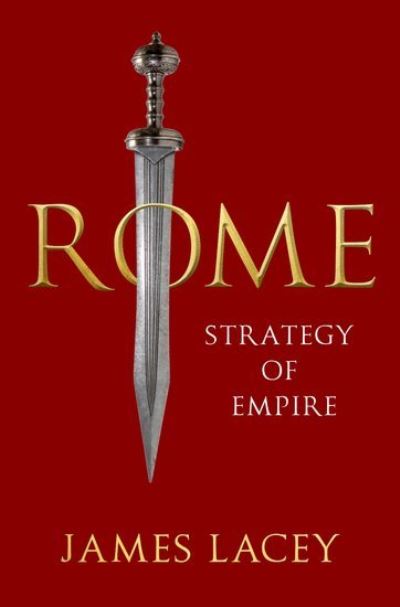Menu

€34.99
The first work to lay out Roman strategic thinking from its start under Augustus until its final demise in 476 CEFrom Octavian’s victory at Actium (31 bc) to its traditional endpoint in the West (476), the Roman Empire lasted a solid 500 years-an impressive number by any standard, and fully one-fifth of all recorded history. In fact, the decline and final collapse of the Roman Empire took longer than most other empires even existed. Any historian trying to unearth the grand strategy of the Roman Empire must, therefore, always remain cognizant of the time scale, in which she is dealing. Although thepace of change in the Roman era never approached that of the modern era, it was not an empire in stasis. While the visible trappings may have changed little, the challenges Rome faced at its end were vastly different than those faced by Augustus and the Julio-Claudians. Over the centuries, the Empire’sunderlying economy, political arrangements, military affairs, and, most importantly, the myriad of external threats it faced were in constant flux, making adaptability to changing circumstances as important to Roman strategists as it is to strategists of the modern era.Yet the very idea of Rome having a grand strategy, or what it might be, had not concerned historians until Edward Luttwak’s The Grand Strategy of the Roman Empire appeared forty years ago. Although this pioneering work generated much debate, it failed to win over many ancient historians, in part because of its heavy emphasis on military force and its neglect of considerations of diplomacy, economics, politics, culture, and the changing nature of the threats that confronted Rome.By employing an expansive definition of strategy and by focusing much of the narrative on crucial historical moments and the personalities involved, James Lacey provides a comprehensive, persuasive, and engaging account of the rise and fall of the Roman Empire. It assimilates the most recent work of classical historians and archaeologists to correct the flaws and omissions of previous accounts, thus presenting the most complete and nuanced narrative of Roman strategic thinking and executionever published.
Out of stock
Strategy of Empire dispels the myth that Romans were incapable of longterm strategic thinking or maintaining any enunciated strategy for more than a brief period, acting as a welcome counternarrative to Edward Luttwak’s The Grand Strategy of the Roman Empire: From the First Century A.D. to the Third.
| Weight | 0.786 kg |
|---|---|
| Dimensions | 24.2 × 16.3 × 3.6 cm |
| Author | |
| Publisher | |
| Imprint | |
| Cover | Hardback |
| Pages | xiv, 430 |
| Language | English |
| Edition | |
| Dewey | 355.00945632 (edition:23/eng/20220223) |
| Readership | / Code: |
Can’t find the right book, why not give a gift card and let them find that special book.
If we don’t have the book you want, we will do our best to order it for you and often have it in a few days.
| Cookie | Duration | Description |
|---|---|---|
| cookielawinfo-checkbox-analytics | 11 months | This cookie is set by GDPR Cookie Consent plugin. The cookie is used to store the user consent for the cookies in the category "Analytics". |
| cookielawinfo-checkbox-functional | 11 months | The cookie is set by GDPR cookie consent to record the user consent for the cookies in the category "Functional". |
| cookielawinfo-checkbox-necessary | 11 months | This cookie is set by GDPR Cookie Consent plugin. The cookies is used to store the user consent for the cookies in the category "Necessary". |
| cookielawinfo-checkbox-others | 11 months | This cookie is set by GDPR Cookie Consent plugin. The cookie is used to store the user consent for the cookies in the category "Other. |
| cookielawinfo-checkbox-performance | 11 months | This cookie is set by GDPR Cookie Consent plugin. The cookie is used to store the user consent for the cookies in the category "Performance". |
| viewed_cookie_policy | 11 months | The cookie is set by the GDPR Cookie Consent plugin and is used to store whether or not user has consented to the use of cookies. It does not store any personal data. |
Get notified about new articles